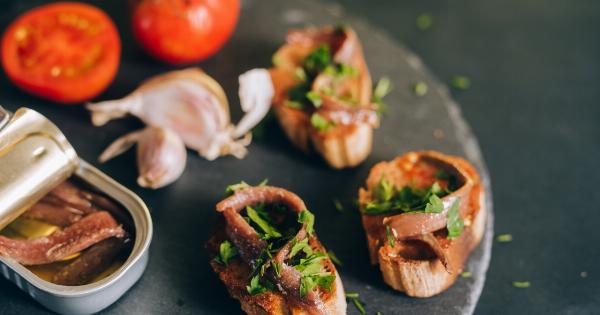Pregnancy is a critical time in a woman’s life when her body goes through numerous changes to support the growth and development of the baby.
Along with regular check-ups and prenatal care, maintaining a healthy and balanced diet is crucial during pregnancy. Good nutrition not only ensures the well-being of the mother but also provides essential nutrients for the proper development of the fetus.
In this article, we will discuss the pregnancy eating do’s and don’ts to help you make informed choices for a healthy pregnancy.
1. Do: Eat a Balanced Diet
A balanced diet during pregnancy should include a variety of fruits, vegetables, whole grains, lean proteins, and low-fat dairy products. This ensures that you get all the necessary nutrients required for a healthy pregnancy.
Remember to have a mix of different colored fruits and vegetables to get a wide range of vitamins and minerals.
2. Don’t: Consume Raw or Undercooked Seafood
While seafood can be a valuable source of omega-3 fatty acids, pregnant women should avoid raw or undercooked seafood due to the risk of contamination with bacteria or parasites, which can harm the baby.
Choose cooked seafood options like salmon or shrimp, but ensure they are cooked thoroughly.
3. Do: Drink Plenty of Water
Staying hydrated is essential during pregnancy. Water helps in the formation of amniotic fluid, aids digestion, prevents constipation, regulates body temperature, and promotes healthy blood circulation.
Aim for at least 8-10 glasses of water per day, more if you are physically active or in a hot climate.
4. Don’t: Consume Excess Caffeine
While it’s okay to have some caffeine during pregnancy, excess consumption should be avoided. High amounts of caffeine can increase the risk of miscarriage and low birth weight.
Limit your caffeine intake to 200mg per day, which is roughly one 12-ounce cup of coffee.
5. Do: Take Prenatal Vitamins
Prenatal vitamins are specifically formulated to meet the nutrient needs of pregnant women. They typically contain folic acid, iron, calcium, and other essential vitamins and minerals.
Taking prenatal vitamins as prescribed by your healthcare provider can help fill any nutritional gaps and promote the healthy growth of the baby.
6. Don’t: Eat Unpasteurized Dairy Products
Unpasteurized dairy products like certain soft cheeses can pose a risk of bacterial infections such as listeriosis. These infections can potentially harm the baby or lead to miscarriage.
Always choose pasteurized dairy products to ensure they are free from harmful bacteria.
7. Do: Opt for Healthy Snacking
Maintaining steady blood sugar levels is important during pregnancy. Opt for healthy snacks such as fruits, nuts, yogurt, or whole-grain crackers to keep your energy levels up and prevent excessive hunger.
Avoid sugary or processed snacks that provide empty calories without any nutritional value.
8. Don’t: Smoke or Consume Alcohol
Smoking and consuming alcohol during pregnancy can have severe consequences on fetal development, leading to premature birth, low birth weight, birth defects, and a higher risk of miscarriage.
It is crucial to avoid smoking and alcohol entirely throughout your pregnancy.
9. Do: Listen to Your Body
Every woman’s body is unique, and each pregnancy may have different requirements. Pay attention to your body’s signals and eat when you’re hungry. Honor your cravings but ensure they are balanced and nutritious choices.
If you have any specific dietary concerns or medical conditions, consult with your healthcare provider.
10. Don’t: Restrict Calories
Pregnancy is not the time for weight loss or strict calorie restriction. Your body needs additional calories and nutrients to support the growth and development of the baby.
Focus on nourishing your body with healthy foods rather than obsessing over weight gain. Remember, weight gain is a natural and essential part of a healthy pregnancy.























